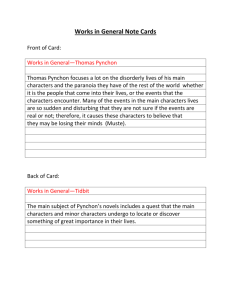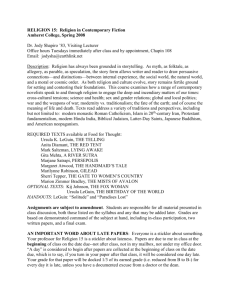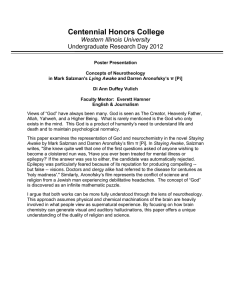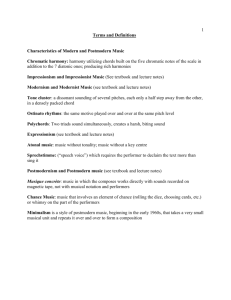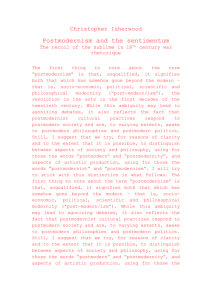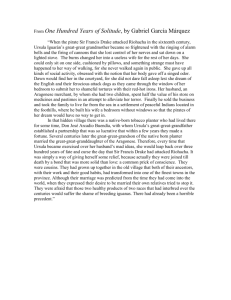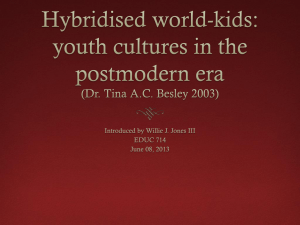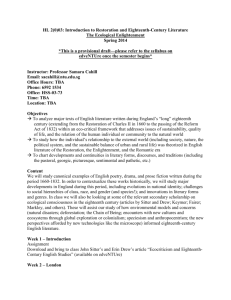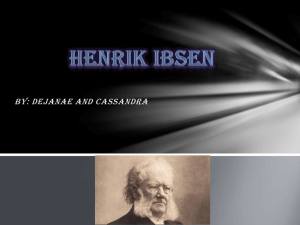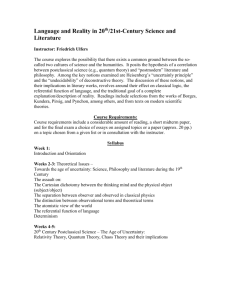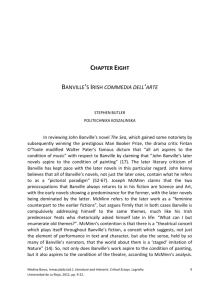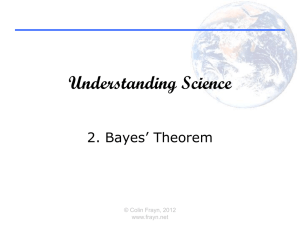HL4028
advertisement
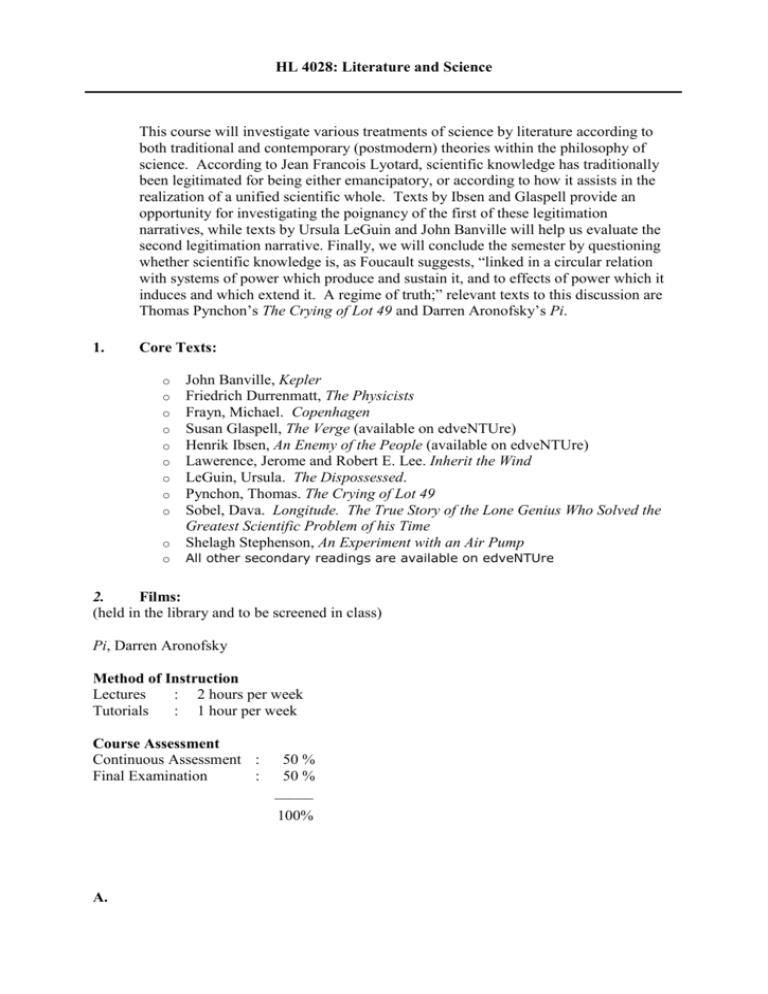
HL 4028: Literature and Science This course will investigate various treatments of science by literature according to both traditional and contemporary (postmodern) theories within the philosophy of science. According to Jean Francois Lyotard, scientific knowledge has traditionally been legitimated for being either emancipatory, or according to how it assists in the realization of a unified scientific whole. Texts by Ibsen and Glaspell provide an opportunity for investigating the poignancy of the first of these legitimation narratives, while texts by Ursula LeGuin and John Banville will help us evaluate the second legitimation narrative. Finally, we will conclude the semester by questioning whether scientific knowledge is, as Foucault suggests, “linked in a circular relation with systems of power which produce and sustain it, and to effects of power which it induces and which extend it. A regime of truth;” relevant texts to this discussion are Thomas Pynchon’s The Crying of Lot 49 and Darren Aronofsky’s Pi. 1. Core Texts: o o o o o o o o o o o John Banville, Kepler Friedrich Durrenmatt, The Physicists Frayn, Michael. Copenhagen Susan Glaspell, The Verge (available on edveNTUre) Henrik Ibsen, An Enemy of the People (available on edveNTUre) Lawerence, Jerome and Robert E. Lee. Inherit the Wind LeGuin, Ursula. The Dispossessed. Pynchon, Thomas. The Crying of Lot 49 Sobel, Dava. Longitude. The True Story of the Lone Genius Who Solved the Greatest Scientific Problem of his Time Shelagh Stephenson, An Experiment with an Air Pump All other secondary readings are available on edveNTUre 2. Films: (held in the library and to be screened in class) Pi, Darren Aronofsky Method of Instruction Lectures : 2 hours per week Tutorials : 1 hour per week Course Assessment Continuous Assessment : Final Examination : 50 % 50 % _____ 100% A. Proposal for the short Essay: This 400 word proposal will make the case that the subject you are interested in is worthy of an essay. Those failing to turn this assignment in on time will lose a letter grade off their final essay. Final Essay: This 2000 word essay (lower limit) must defend an original thesis about one of the works read in class – and do so by reflecting on secondary material about the play and/or the author of the play. You must use at least 3 secondary sources. B. The Final Examination will consist of two essays worth equal points. **Warning** Plagiarism will not be tolerated and will result in automatic failure of the course. Lecturer Daniel Jernigan* Office Room No. DID E-mail Address djernigan@ntu.edu.sg * Course Co-ordinator Proposed Lecture Schedule Week No. Topics Week 1 Course Introduction Week 2 Science as Progress Week 3 Science and the Humanities Week 4 Science and Religion Week 5 Scientific Method Week 6 The Scientist as Heroic Figure Week7 Science and Historiography Week 8 Readings Henrik Ibsen, An Enemy of the People; Leo Marx, “Does Improved Technology Mean Progress” Susan Glaspell, The Verge; C. P. Snow, “The Two Cultures” Lawerence, Jerome and Robert E. Lee. Inherit the Wind LeGuin, Ursula. The Dispossessed; Popper, “Conjectural Knowledge” John Banville, Kepler; Thomas Kuhn, “The Function of Dogma” John Banville, Kepler continued; Recess Week No. Week 9 Week 10 Topics Research Paper interviews – no class Science and Madness Week 11 Science and Postmodern Literature Week 12 Science and Power Week 13 Postmodern Science and Literature Week 14 Science and Ethics Readings Friedrich Durrenmatt, The Physicists Excerpt from The Postmodern Condition (Part 2) Pynchon, Thomas. The Crying of Lot 49 Lyotard, Pi, Darren Aronofsky Foucault, From “Truth and Power” Frayn, Michael, Copenhagen; Gross and Levitt, “The Academic Left and Science” Shelagh Stephenson, An Experiment with an Air Pump
